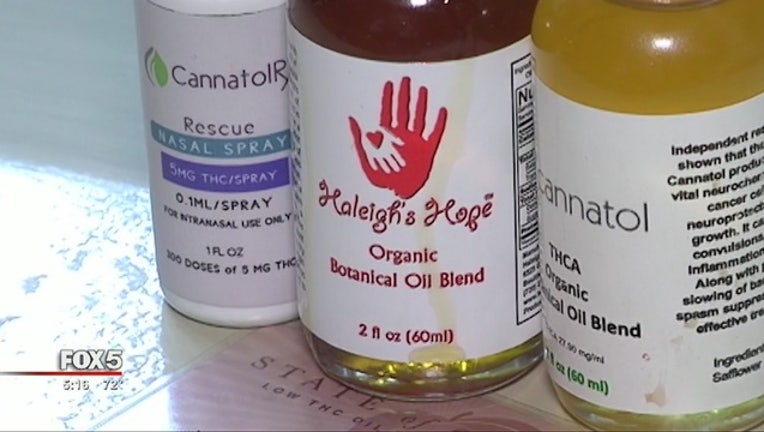Advocates push Georgia to expand medical marijuana access

ATLANTA (AP) - Georgia parents and advocates are continuing to push for legislation that would expand access to medical marijuana even as they butt up against opposition from conservative lawmakers and law enforcement.
Rep. Allen Peake, R-Macon, sponsored a bill that would allow patients with post-traumatic stress disorder, AIDS, HIV, chronic pain, or autism to qualify for medical marijuana. It would also remove some restrictions on patients with cancer, multiple sclerosis or Lou Gehrig's disease.
The bill removes some residency restrictions and eases reporting requirements on prescribing physicians.
After a two-hour hearing, the group of lawmakers brought up new questions about the bill's language and decided to push a vote until next week. Peake said he was confident the bill would get a favorable vote and move on to the full judiciary committee.
"The existing law has been in place for two years and the sky hasn't fallen yet," said Peake, who called the bill a "bipartisan, compassion issue."
Three other bills are being considered by the legislature. One puts a measure on the ballot to allow in-state cultivation and production of medical cannabis; another reduces the level of THC permissible in cannabis oil from 5 to 3 percent. A separate bill decriminalizes marijuana entirely, though there is very little chance of it passing.
In 2015, the state legislature passed a bill that legalized the possession medical cannabis oil to people with certain medical conditions. However, the bill did not provide for any way to legally produce the oil in state, and patients complained that getting it from other states is both expensive and risky.
Marijuana is designated as a Class 1 controlled substance, meaning that the government does not recognize that it has any medical value, and therefore has been difficult to study.
Forty-two states have legislation allowing some use of cannabis. Georgia is one of 14 states that have low THC cannabis oil programs.
During the hearing, many parents of sick children came forward to tell stories of how cannabis had positively affected their lives.
Brian Underwood talked about his son, who has a rare, severe skin condition where "the skin can blister or come off the body at the slightest touch."
Under the current law, Underwood's son does not qualify for medical marijuana, but he explained that he uses cannabis oil and cream to treat his son, with remarkable results. He called on the legislature to adjust the law so that he doesn't have to keep breaking it to care for his son.
Dr. David Bradford, a professor at the University of Georgia, testified that in his own peer-reviewed study, he found that states with medical marijuana programs saw a reduction in the rate of opioid addiction and the number of opioid-related deaths. The study published in Health Affairs Journal in 2016 also showed a correlation between medical marijuana programs and a drop in the number of pharmaceuticals prescribed, which cost states less in Medicaid payments.
"Appropriately designed medical cannabis laws can save both lives and money," Bradford said.

